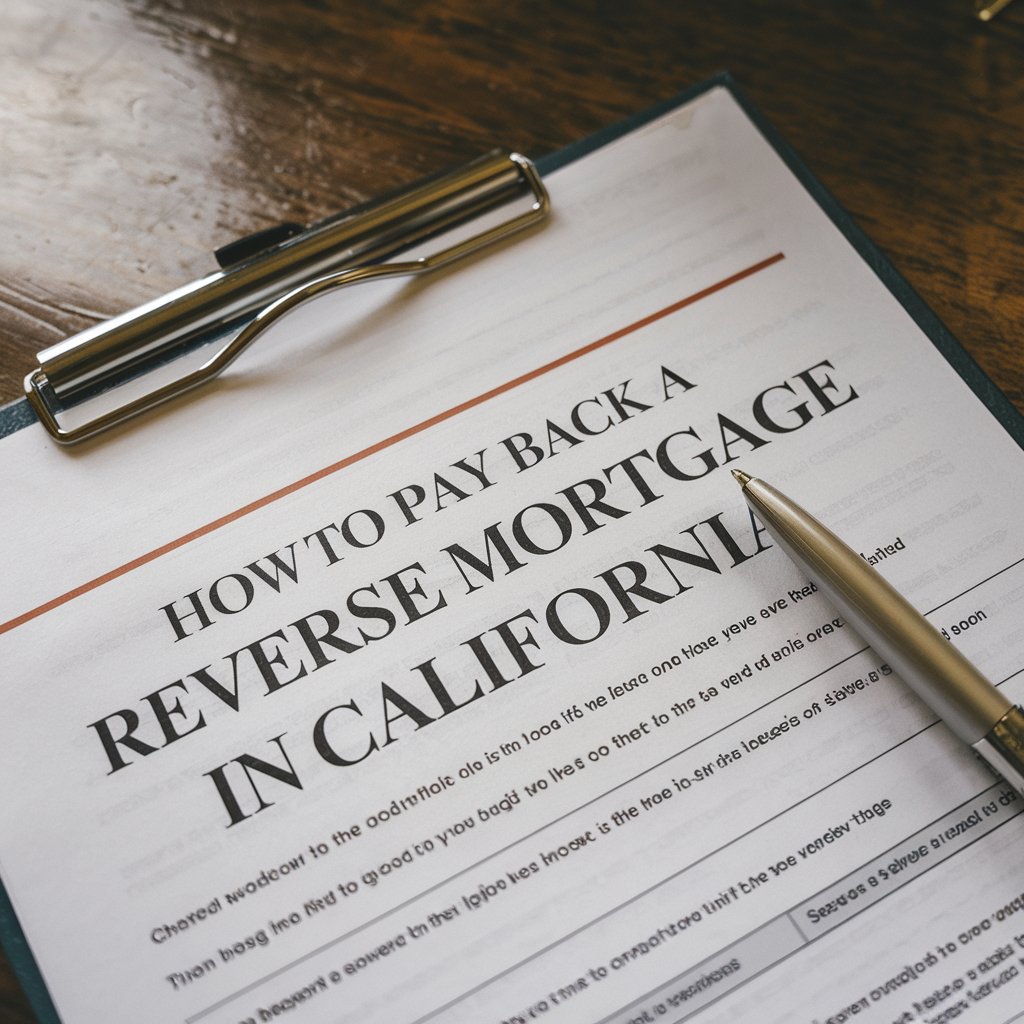When Do You Need to Pay Back a Reverse Mortgage? A reverse mortgage in California must be repaid in full if the last surviving borrower or eligible non-borrowing spouse:
- Passes away
- Sells the home
- No longer lives in the home as their primary residence
The last scenario can occur if the borrower moves into an assisted living facility, relocates to a family member’s home, or downsizes.
Additionally, if the borrower fails to pay homeowners insurance, property taxes, or neglects home maintenance, the loan may need to be repaid sooner than expected.
How Do You Pay Back a Reverse Mortgage? There are several ways to repay a reverse mortgage in California. If you or your heirs need to settle the loan, consider these options:
Option 1: Sell the Home Once the reverse mortgage becomes due, selling the home is a common way to repay the loan. The sale proceeds first go toward paying off the lender, and any remaining funds belong to the borrower’s estate or heirs.
If the home’s market value is lower than the outstanding loan balance, the Federal Housing Administration (FHA) allows the loan to be considered satisfied if the home is sold for at least 95% of its appraised value.
Option 2: Refinance the Mortgage Borrowers who want to exit a reverse mortgage but keep their home can refinance it into a traditional mortgage loan. This allows them to regain homeownership under a conventional loan structure, but they must begin making monthly mortgage payments again.
Option 3: Take Out a New Mortgage If heirs wish to keep the home, they can take out a new mortgage to pay off the reverse mortgage balance. This process functions similarly to a refinance, allowing heirs to retain ownership and use the home as they see fit.
Option 4: Provide a Deed in Lieu of Foreclosure If repaying the loan is not financially viable, the borrower or their heirs can voluntarily transfer the home’s deed to the lender to avoid foreclosure.
Option 5: Use the Right of Rescission If a borrower has second thoughts about their reverse mortgage, they have three business days after closing to cancel it without penalty under the right of rescission. To cancel, they must notify the lender in writing and send the request via certified mail for documentation.
Can You Pay Off a Reverse Mortgage Early? Yes, borrowers can pay off a reverse mortgage in California early. Prepaying the loan reduces the interest that accrues on the outstanding balance. Some ways to exit a reverse mortgage early include:
- Making periodic payments to reduce the loan balance over time.
- Paying off the loan in full with available funds.
- Refinancing the reverse mortgage into a conventional loan.
Reasons to Get Out of a Reverse Mortgage Life circumstances change, and borrowers may find that a reverse mortgage no longer suits their needs. Common reasons to exit a reverse mortgage include:
- Financial improvement: If your financial situation improves, you may no longer need the supplemental income.
- Costly home maintenance: Even without mortgage payments, maintaining a home can be expensive due to insurance, property taxes, and repairs.
- Relocation plans: If you plan to move, the home will no longer qualify as your primary residence, requiring repayment of the loan.
- Estate planning: If you want to leave the home to your heirs free of debt, paying off the reverse mortgage may be necessary.
Explore Your Reverse Mortgage Options in California
A reverse mortgage can provide financial relief, but it’s important to understand repayment options. Whether you’re planning for the future or need to settle a loan, Reverse Mortgage California is here to help.
📞 Call us: 909-642-8258
📍 Google Business Profile: https://bit.ly/rmcgbp

